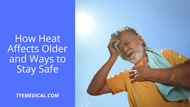How Heat Affects Older Adults and Ways to Stay Safe
Written by TYE Medical on Jun 4th 2024
When temperatures rise, older people are among those most likely to become sick and die from the damaging effects of heat. Of the estimated 12,000 people in the U.S. who die from heat-related causes each year, 80 percent are over age 60. It’s clear that senior adults are most vulnerable to the stresses of heat. This article will explore how heat affects older adults while offering ways to stay safe during the heat waves of summer.
Why Older Adults Are More Vulnerable to Heat
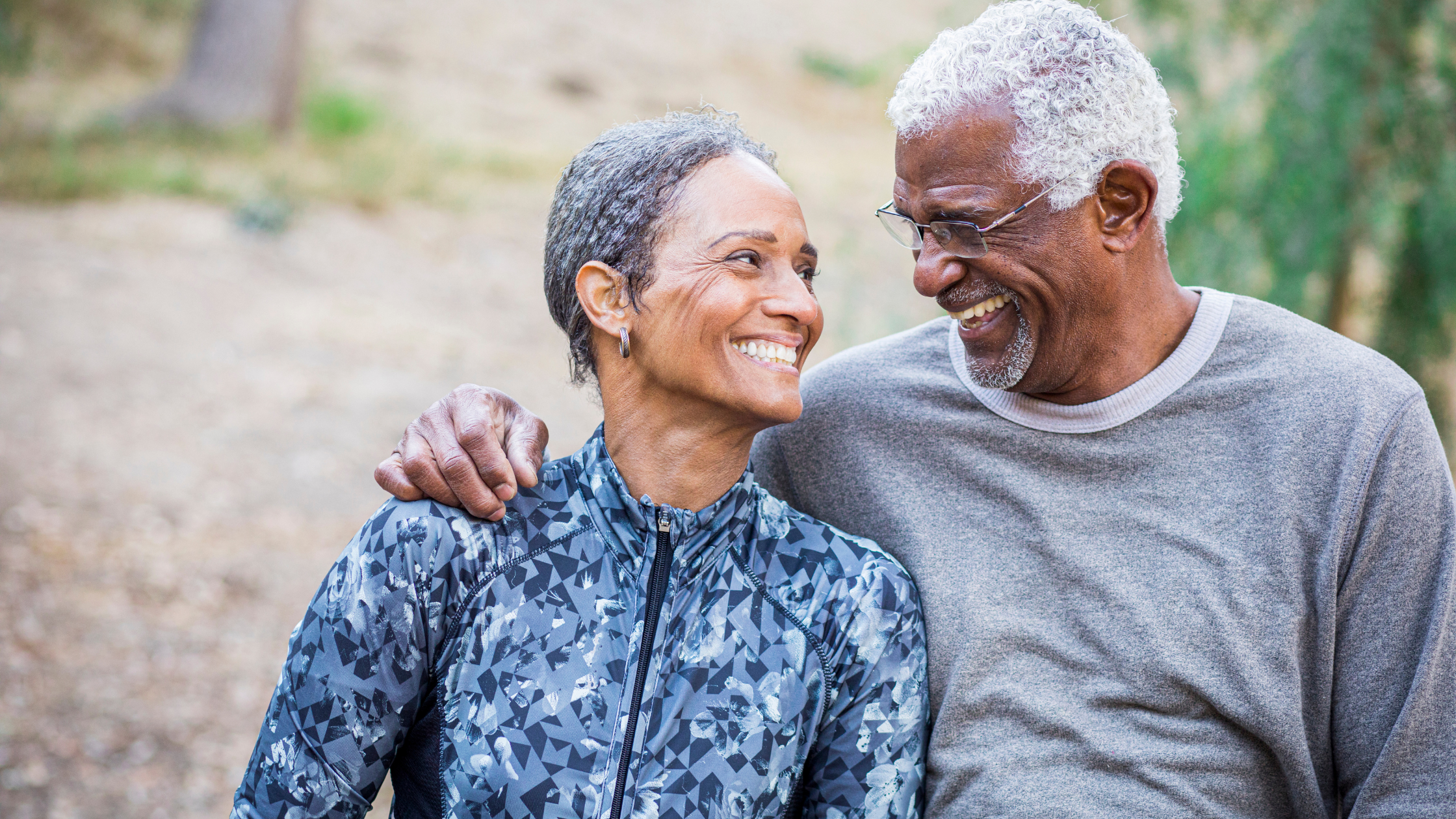
Biological factors play a role in the dangers of high temperatures when you’re over 60. Even if you’re healthy, it can be difficult to discern when it’s too hot or that you’re becoming dehydrated. This means you may be slower to take measures to protect yourself from the heat or intake more fluids.
To make matters worse, as you age, your body holds more heat as temperatures increase. This is because your glands don’t release as much sweat as when you were younger, so your internal cooling system isn’t as effective or efficient. Additionally, your blood circulation diminishes with age, which means less heat is released from your blood vessels through your skin.
Medications can also make you more heat intolerant as an older adult. If your doctor makes you aware of this and offers insight in how to manage this side effect, the problem can be overcome. You don’t necessarily have to choose between your medication and heat safety.
What Are the Signs of Overheating for Older Adults?
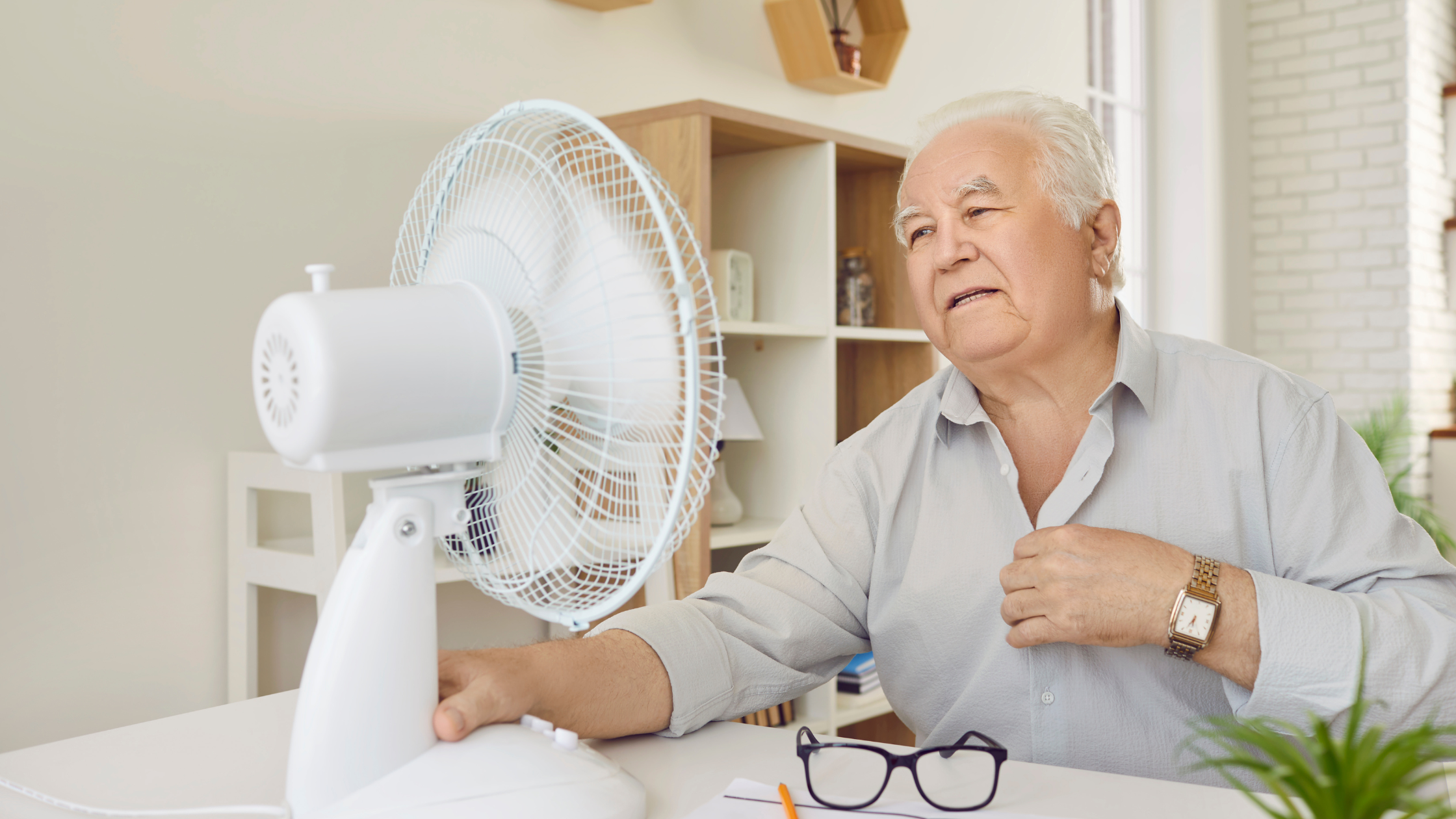
You may experience several of these symptoms when you are overheated:
- Sudden dizziness
- Heat cramps
- Swelling your legs or ankles
- Heat exhaustion
- Heath Stroke
Heat exhaustion happens when your body can no longer cool itself. You can address the situation by removing yourself to a cool environment, loosening your clothes or putting on cooler clothes. You can also try taking a cool bath. Some people find it helpful to drink a sports beverage that contains electrolytes. This can hydrate your body more rapidly than water alone.
Symptoms of heat exhaustion include:
- Thirst
- Dizziness
- Weakness
- Stumbling, becoming uncoordinated
- Nausea
- Increased sweating
- Cold, clammy skin
- Rapid pulse
Heat stroke surpasses heat exhaustion and is a medical emergency. If you suspect a heat stroke, call 911 immediately. Get to a cooler place and put on cooler clothes. Do NOT have anything to drink, as this could make the problem worse.
Symptoms of a heat stroke include:
- Fainting
- Increased body temperature over 104 degrees Fahrenheit
- Dry skin
- Strong and rapid pulse
- Or a slow and weak pulse
- No longer sweating (even though it’s still hot)
Heat Safety Tip #1: Avoid the Outdoors

It’s best to avoid direct sun and stay inside an air conditioned building when it’s especially hot outside. Try planning your outdoor activities for early in the morning and finish by 10 a.m. If morning isn’t ideal, you can plan to be outdoors as the sun starts to set. Otherwise, stay where there is air conditioning. If you don’t have air conditioning or can’t afford it, spend some time in places that do, especially when there is a heat wave. You could read a book at the library, walk at an indoor mall, or meet your friend for ice coffee.
Heat Safety Tip #2: Stay Hydrated
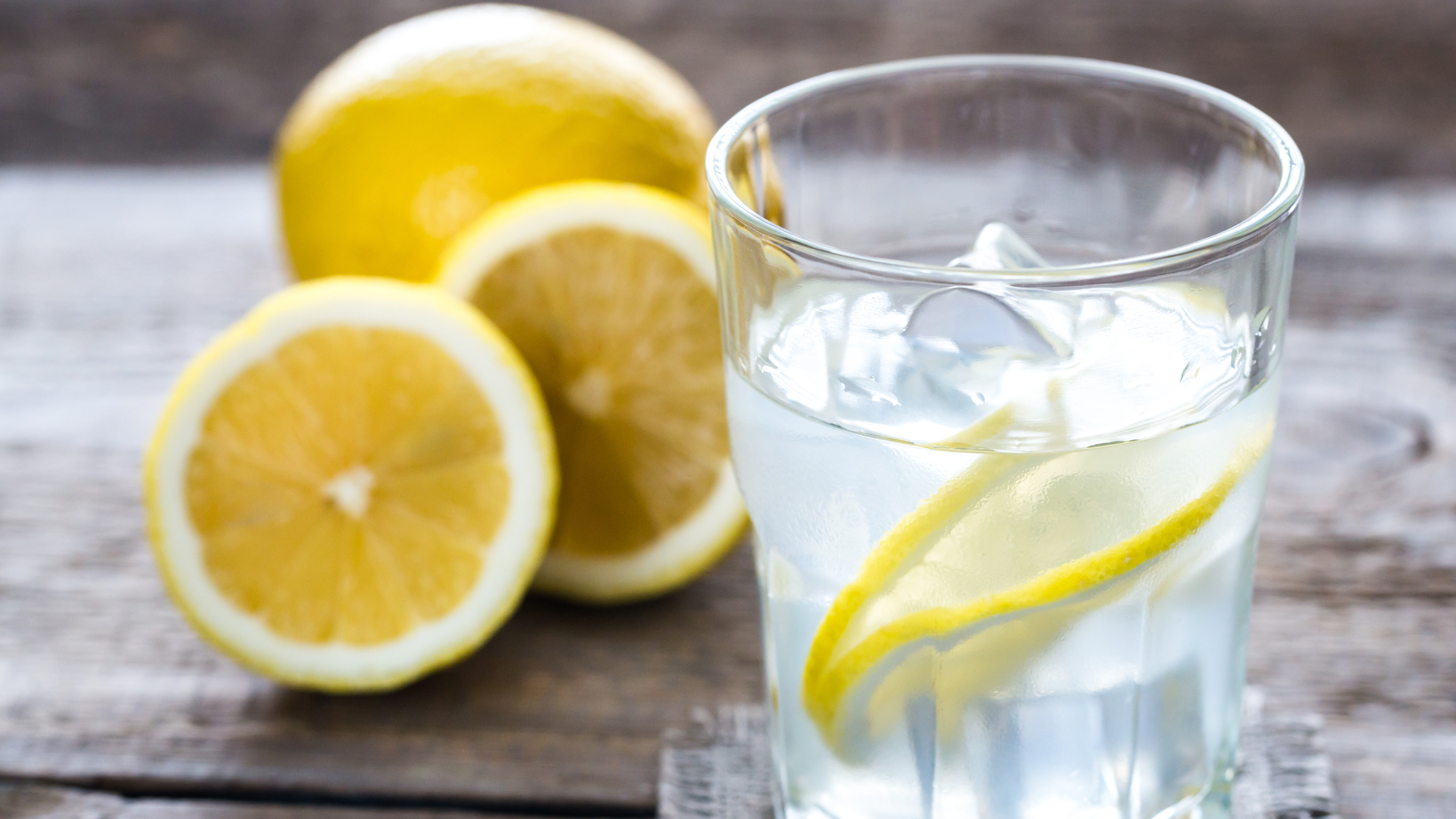
This is another obvious one, but it can also slip your mind if you’re not making an effort to pay attention to your fluid intake. Ensure you drink plenty of cool or cold water, clear juices, electrolyte drinks, or anything that is alcohol and caffeine free. Both alcohol and caffeine are diuretics that expel fluid from your body. They counteract hydration.
Most experts agree that you should drink one-third to one half your body weight in ounces each day. During the summer, it’s best to drink at the higher end of the range to prevent dehydration.
Heat Safety Tip #3: Dress for the Weather

It’s best to wear looser, light-colored clothes that are also lighter in weight. These materials are more breathable, so they don’t trap heat. And the lighter colors reflect more of the sun’s energy rather than absorbing it like darker colors. It’s also a good idea to wear a broad-brimmed hat if you’re in the sun.
Heat Safety Tip #4:Use Sunscreen

Use broad spectrum sunscreen that is SPF 15 or higher. You may choose a lotion or a spray, but what’s most important is that you apply it liberally to all sun-exposed skin. While you’re aware that sunscreen helps protect your skin from damaging UV rays and sunburns, you might not realize that it can also help prevent heat exhaustion and heat stroke.
Heat Safety Tip #5: Apply Cool Water
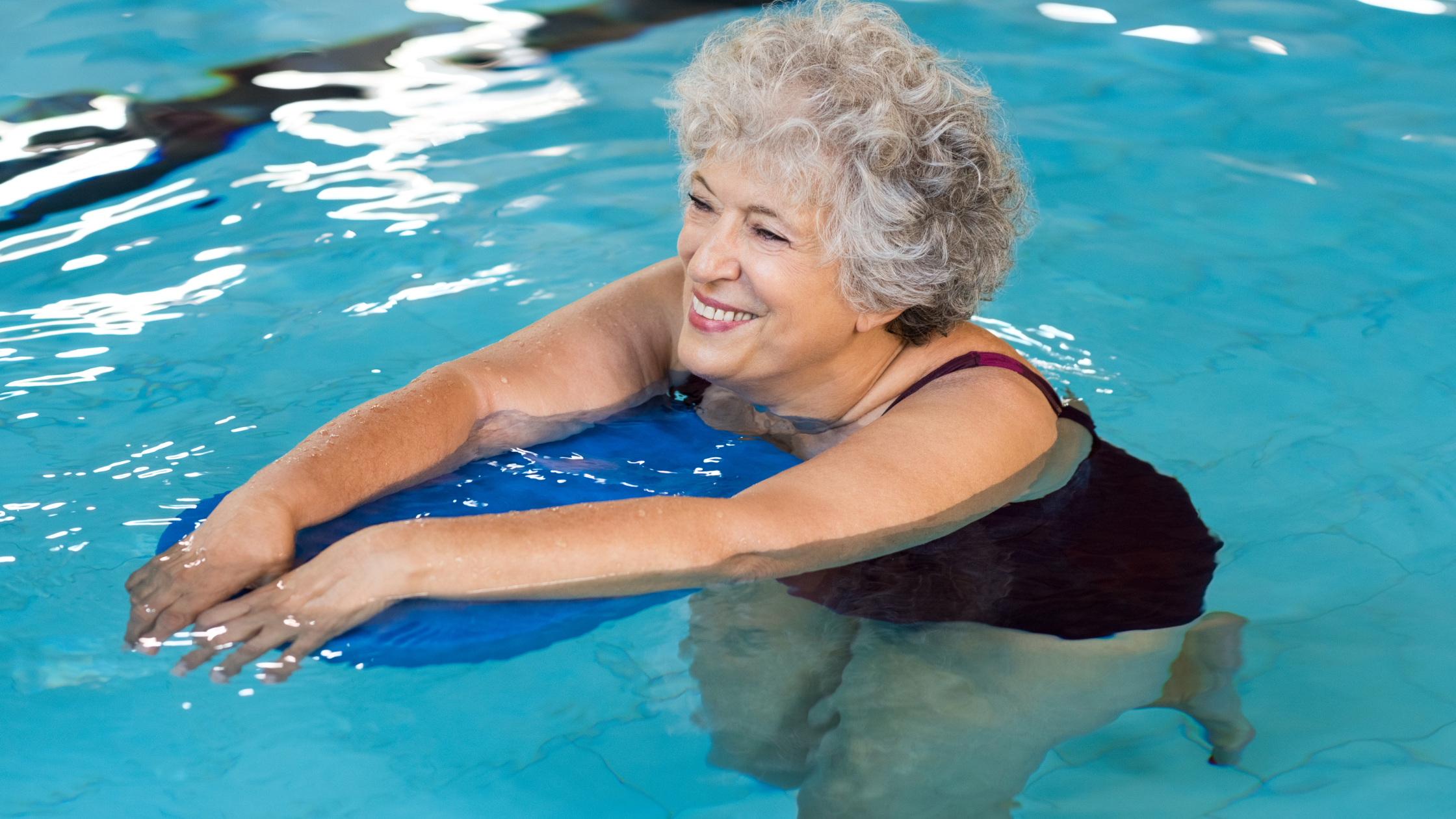
When you’re feeling too warm, take a cool (but not too cold) shower or bath. This can help to regulate your system and bring relief to the discomfort. If you’re short on time or have another reason for not wanting to get completely wet, you can apply cool, wet washcloths to key areas like your wrists, ankles, neck, and armpits.
Be Aware and Proactive This Summer
The best way to beat the heat this summer is to be conscious of outdoor temperatures, sun exposure, and your own body’s reactions. Remember that you may not recognize your overheating until you are already dehydrated or experiencing heat exhaustion symptoms. So it’s best to stay proactive and be sure you’re dressing for the heat, staying hydrated, using sunscreen, and applying cool water when needed.

